|
Books Should Be Free Loyal Books Free Public Domain Audiobooks & eBook Downloads |
|
|
Books Should Be Free Loyal Books Free Public Domain Audiobooks & eBook Downloads |
|
Economics/Political Economy Books |
|---|
Book type:
Sort by:
View by:
|
By: Jack London (1876-1916) | |
|---|---|
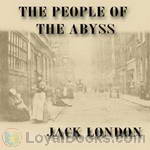 The People of the Abyss
The People of the Abyss
Jack London lived for a time within the grim and grimy world of the East End of London, where half a million people scraped together hardly enough on which to survive. Even if they were able to work, they were paid only enough to allow them a pitiful existence. He grew to know and empathise with these forgotten (or ignored) people as he spoke with them and tasted the workhouse, life on the streets, … and the food, which was cheap, barely nutritious, and foul.He writes about his experiences in... | |
By: Daniel Defoe (1661?-1731) | |
|---|---|
 An Essay Upon Projects
An Essay Upon Projects
| |
By: Oscar Wilde (1854-1900) | |
|---|---|
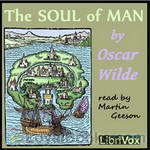 The Soul of Man
The Soul of Man
“(T)he past is what man should not have been. The present is what man ought not to be. The future is what artists are.”Published originally as “The Soul of Man Under Socialism,” this is not so much a work of sober political analysis; rather it can be summed up as a rhapsodic manifesto on behalf of the Individual. Socialism having deployed technology to liberate the whole of humanity from soul-destroying labour, the State obligingly withers away to allow the free development of a joyful, anarchic hedonism... | |
By: Stephen Leacock (1869-1944) | |
|---|---|
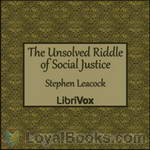 The Unsolved Riddle of Social Justice
The Unsolved Riddle of Social Justice
This lengthy political essay by noted Canadian humourist Stephen Leacock was written while he was professor of political economy at McGill University. He argues for a middle ground between individualism/capitalism and pure socialism. Listeners in the early 21st century may find this 90-year old essay oddly topical. | |
By: Harriet Beecher Stowe (1811-1896) | |
|---|---|
 American Woman's Home
American Woman's Home
| |
By: Arnold Bennett (1867-1931) | |
|---|---|
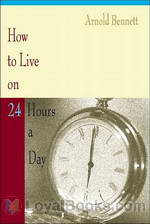 How to Live on Twenty-Four Hours a Day
How to Live on Twenty-Four Hours a Day
This book is a classic piece on self improvement teaching you to live to the fullest. Judging from the title of the book, the reader might expect that the book is a manual on how to manage your time better. Nothing could be further from the truth, this book is a flowery and witty self help book aimed at helping readers improve the quality of their lives, in fact it is one of the firsts of its kind in the world. Bennett describes the twenty four hours in a day as a miracle and that it should be used for the betterment of health, wealth, respect, pleasure and contentment... | |
By: Adam Smith (1723-1790) | |
|---|---|
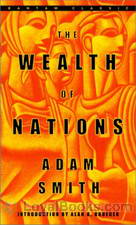 The Wealth of Nations
The Wealth of Nations
Adam Smith’s “The Wealth of Nations” gives an in-depth discussion of different economic principles like the productivity, division of labor and free markets. Although written and published more than 200 years ago, it’s still hailed as one of the most original works in the field of economics and is still used as a reference by many modern economists. “An Inquiry Into the Nature and Causes of the Wealth of Nations” is the complete title of this book and it was first published in 1776, the same year that the American colonies declared their independence from Britain... | |
By: Francis Bacon (1561-1626) | |
|---|---|
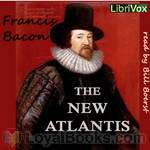 The New Atlantis
The New Atlantis
In 1623, Francis Bacon expressed his aspirations and ideas in New Atlantis. Released in 1627, this was his creation of an ideal land where people were kind, knowledgeable, and civic-minded. Part of this new land was his perfect college, a vision for our modern research universities. Islands he had visited may have served as models for his ideas. | |
By: Sarah Orne Jewett (1849-1909) | |
|---|---|
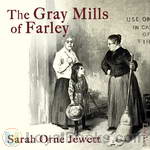 The Gray Mills of Farley
The Gray Mills of Farley
As contemporary today as it was over a century ago, this relatively unsentimental tale of labor relations still packs a punch. | |
By: H. G. Wells (1866-1946) | |
|---|---|
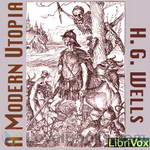 A Modern Utopia
A Modern Utopia
H. G. Wells's proposal for social reform was the formation of a world state, a concept that would increasingly preoccupy him throughout the remainder of his life. One of his most ambitious early attempts at portraying a world state was A Modern Utopia (1905). A Modern Utopia was intended as a hybrid between fiction and 'philosophical discussion'. Like most utopists, he has indicated a series of modifications which in his opinion would increase the aggregate of human happiness. Basically, Wells' idea of a perfect world would be if everyone were able to live a happy life... | |
By: John Ruskin (1819-1900) | |
|---|---|
 The Crown of Wild Olive also Munera Pulveris; Pre-Raphaelitism; Aratra Pentelici; The Ethics of the Dust; Fiction, Fair and Foul; The Elements of Drawing
The Crown of Wild Olive also Munera Pulveris; Pre-Raphaelitism; Aratra Pentelici; The Ethics of the Dust; Fiction, Fair and Foul; The Elements of Drawing
| |
By: George Berkeley (1685-1753) | |
|---|---|
 Querist
Querist
| |
By: Timothy S. Arthur (1809-1885) | |
|---|---|
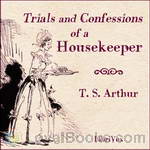 Trials and Confessions of a Housekeeper
Trials and Confessions of a Housekeeper
Is housekeeping such a trial? Mrs. Smith thinks so and confesses all in this merry account of her escapades and near disasters! | |
By: Russell Herman Conwell (1843-1925) | |
|---|---|
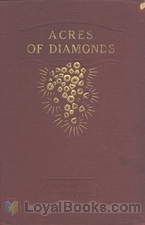 Acres of Diamonds
Acres of Diamonds
Text of famous inspirational lecture and biography of Russell Conwell, a Baptist minister and Temple University Founder | |
By: Mrs. Isabella Beeton (1836-1865) | |
|---|---|
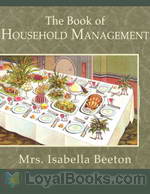 The Book of Household Management
The Book of Household Management
“Mrs. Beeton’s” is a guide to all aspects of running a household in Victorian Britain. Published in 1861, it was an immediate bestseller, running to millions of copies within just a few years. In the cookery sections, Mrs. Beeton follows the animal “from his birth to his appearance on the table.” Learn how to care for poultry during moulting season, how to wean calves, how to cure hams, salt cod, carve mutton, and much more. | |
By: Thomas R. Malthus (1766-1834) | |
|---|---|
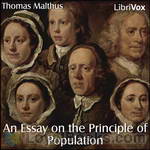 An Essay on the Principle of Population
An Essay on the Principle of Population
The power of population is indefinitely greater than the power in the earth to produce subsistence for man. Population, when unchecked, increases in a geometrical ratio. Subsistence increases only in an arithmetical ratio. A slight acquaintance with numbers will show the immensity of the first power in comparison with the second (Malthus). | |
By: Thorstein Veblen (1857-1929) | |
|---|---|
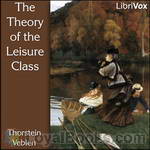 The Theory of the Leisure Class
The Theory of the Leisure Class
Originally published by the Norwegian-American economist Thorstein Veblen while he was a professor at the University of Chicago in 1898, the Theory of the Leisure Class is considered one of the great works of economics as well as the first detailed critique of consumerism. In the book, Veblen argues that economic life is driven not by notions of utility, but by social vestiges from pre-historic times. [Summary modified from Wikipedia.] | |
By: Frederic Bastiat | |
|---|---|
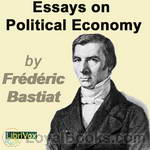 Essays on Political Economy
Essays on Political Economy
Bastiat asserted that the only purpose of government is to defend the right of an individual to life, liberty, and property. From this definition, Bastiat concluded that the law cannot defend life, liberty and property if it promotes socialist policies inherently opposed to these very things. In this way, he says, the law is perverted and turned against the thing it is supposed to defend. | |
By: Jane Addams (1860-1935) | |
|---|---|
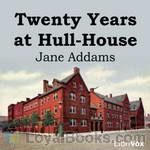 Twenty Years at Hull-House
Twenty Years at Hull-House
Jane Addams was the first American woman to be awarded the Nobel Peace Prize. In a long, complex career, she was a pioneer settlement worker and founder of Hull-House in Chicago, public philosopher (the first American woman in that role), author, and leader in woman suffrage and world peace. She was the most prominent woman of the Progressive Era and helped turn the nation to issues of concern to mothers, such as the needs of children, public health and world peace. She emphasized that women have a special responsibility to clean up their communities and make them better places to live, arguing they needed the vote to be effective... | |
By: Samuel Merwin | |
|---|---|
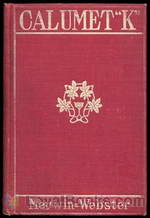 Calumet "K"
Calumet "K"
"A novel, with several elements of rather unusual interest. As a tale, it is swift, simple, and absorbing, and one does not willingly put it down until it is finished. It has to do with grain-elevator business, with railways, strikes, and commercial and financial matters generally, woven skilfully into a human story of love." --The Commercial Advertiser "'Calumet "K"' is a novel that is exciting and absorbing, but not the least bit sensational. It is the story of a rush.... The book is an unusually good story; one that shows the inner workings of the labor union, and portrays men who are the bone and sinew of the earth... | |
By: John Maynard Keynes (1883-1946) | |
|---|---|
 Economic Consequences of the Peace
Economic Consequences of the Peace
The Economic Consequences of the Peace (1919) was a best seller throughout the world, published by John Maynard Keynes. Keynes attended the Versailles Conference as a delegate of the British Treasury and argued for a much more generous peace with Germany. The book was critical in establishing a general worldwide opinion that the Versailles Treaty was a brutal and unfair peace towards Germany. It helped to consolidate American public opinion against the treaty and involvement in the League of Nations... | |
By: Frédéric Bastiat | |
|---|---|
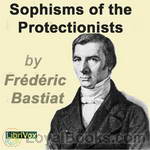 Sophisms of the Protectionists
Sophisms of the Protectionists
"To rob the public, it is necessary to deceive them," Bastiat said and believed. He reasoned, employing repetition to various applications, against fallacious arguments promoting the "Protection" of industries to the detriment of consumers and society. (Introduction by Katie Riley) | |
By: P.T. Barnum | |
|---|---|
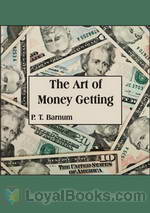 The Art of Money Getting
The Art of Money Getting
Phineas Taylor Barnum (July 5, 1810 – April 7, 1891) was an American showman, businessman, and entertainer, remembered for promoting celebrated hoaxes and for founding the circus that became the Ringling Bros. and Barnum & Bailey Circus.(br />His successes may have made him the first "show business" millionaire. Although Barnum was also an author, publisher, philanthropist, and for some time a politician, he said of himself, "I am a showman by profession...and all the gilding shall make nothing else of me," and his personal aims were "to put money in his own coffers". (Reference: Wikipedia.org) | |
By: Walter Bagehot (1826-1877) | |
|---|---|
 Lombard Street : a description of the money market
Lombard Street : a description of the money market
| |
By: John R. Lynch (1847-1939) | |
|---|---|
 The Facts of Reconstruction
The Facts of Reconstruction
After the American Civil War, John R. Lynch, who had been a slave in Mississippi, began his political career in 1869 by first becoming Justice of the Peace, and then Mississippi State Representative. He was only 26 when he was elected to the US Congress in 1873. There, he continued to be an activist, introducing many bills and arguing on their behalf. Perhaps his greatest effort was in the long debate supporting the Civil Rights Act of 1875 to ban discrimination in public accommodations.In 1884 Lynch was the first African American nominated after a moving speech by Theodore Roosevelt to the position of Temporary Chairman of the Republican National Convention in Chicago, Illinois... | |
By: Orison Swett Marden (1850-1924) | |
|---|---|
 Pushing to the Front
Pushing to the Front
Published in 1894, this is the first book by the renowned inspirational author, Dr. Orison Swett Marden. Pushing to the Front is the product of many years of hard work, and marks a turning point in the life of Dr. Marden. He rewrote it following an accidental fire that brought the five-thousand-plus page manuscript to flames. It went on to become the most popular personal-development book of its time, and is a timeless classic in its genre. Filled with stories of success, triumph and the surmounting of difficulties, it is especially well-targeted at the adolescent or young adult... | |
 How to Succeed
How to Succeed
In this volume, Orison Swett Marden explains the road to success in simple terms for the benefit of anyone, who wishes to follow in his footsteps. Over 100 years after publication, most of these lessons are still valid today. | |
By: Orison Swett Marden (1848-1924) | |
|---|---|
 Architects of Fate or, Steps to Success and Power
Architects of Fate or, Steps to Success and Power
| |
By: Agnes C. Laut (1871-1936) | |
|---|---|
 The Canadian Commonwealth
The Canadian Commonwealth
| |
By: Pierre-Joseph Proudhon (1809-1865) | |
|---|---|
 What is Property? An Inquiry into the Principle of Right and of Government
What is Property? An Inquiry into the Principle of Right and of Government
What Is Property?: or, An Inquiry into the Principle of Right and of Government (French: Qu'est-ce que la propriété ? ou Recherche sur le principe du Droit et du Gouvernment) is an influential work of nonfiction on the concept of property and its relation to anarchist philosophy by the French anarchist and mutualist Pierre-Joseph Proudhon, first published in 1840. In the book, Proudhon most famously declared that “property is theft”. Proudhon believed that the common conception of property conflated two distinct components which, once identified, demonstrated the difference between property used to further tyranny and property used to protect liberty... | |
By: Pierre-Joseph Proudhon (1809-1865) | |
|---|---|
 System of Economical Contradictions; or, the Philosophy of Misery
System of Economical Contradictions; or, the Philosophy of Misery
| |
By: Seymour Eaton (1859-1916) | |
|---|---|
 Up To Date Business Including Lessons in Banking, Exchange, Business Geography, Finance, Transportation and Commercial Law Home Study Circle Library Series (Volume II.)
Up To Date Business Including Lessons in Banking, Exchange, Business Geography, Finance, Transportation and Commercial Law Home Study Circle Library Series (Volume II.)
| |